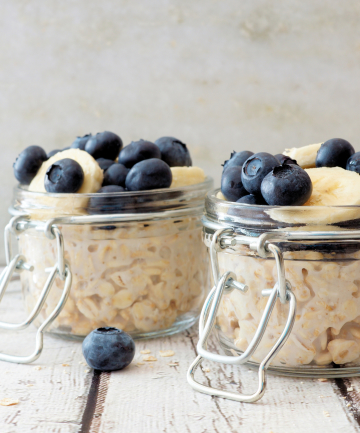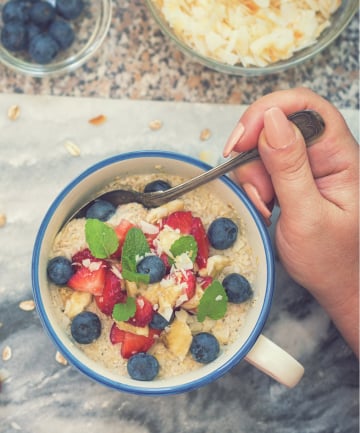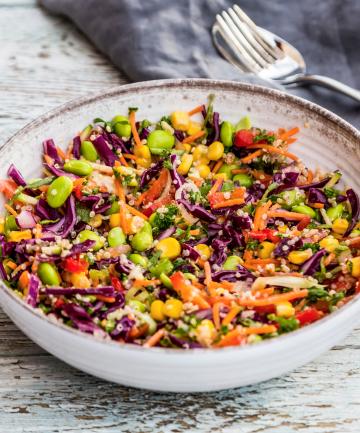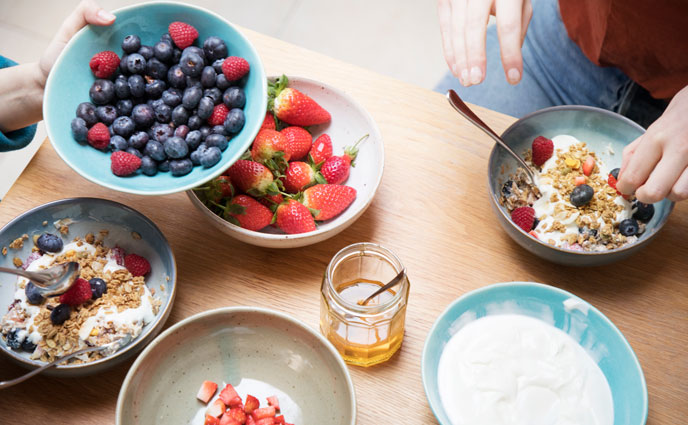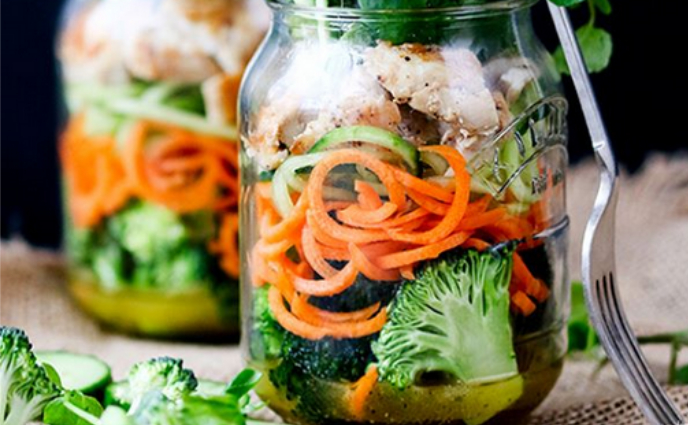Protein has become quite a buzzword, with all of these high-protein diets gaining popularity. But what makes it so important?
Well for starters, the body uses protein for pretty much everything: It's an essential building block for your muscles, so if you're working out, you might need more than usual. It's also important for bones, cartilage, skin, and blood (and even your skin and hair). What's more, your body uses protein to make hormones and enzymes.
And if you're trying to lose weight, protein helps you feel fuller, longer, and can actually help boost your metabolism. In short, protein is a hard-working little nutrient — and some studies suggest we may not be getting enough (especially if you're vegan or vegetarian).
So, how's a person to incorporate more protein into their daily diet? Protein powders can be a good place to start. But they aren't always ideal; sometimes they can taste chalky and thick. And many nutritionists say whole food nutrition is better anyway — so here are 8 easy ways to get more protein every day.
Image via jenifoto/Getty
Well for starters, the body uses protein for pretty much everything: It's an essential building block for your muscles, so if you're working out, you might need more than usual. It's also important for bones, cartilage, skin, and blood (and even your skin and hair). What's more, your body uses protein to make hormones and enzymes.
And if you're trying to lose weight, protein helps you feel fuller, longer, and can actually help boost your metabolism. In short, protein is a hard-working little nutrient — and some studies suggest we may not be getting enough (especially if you're vegan or vegetarian).
So, how's a person to incorporate more protein into their daily diet? Protein powders can be a good place to start. But they aren't always ideal; sometimes they can taste chalky and thick. And many nutritionists say whole food nutrition is better anyway — so here are 8 easy ways to get more protein every day.
Image via jenifoto/Getty
The first meal of the day should have some protein, and the average cereal, or toast, does not. Eggs take two minutes longer than pouring cereal, and they pack 7 grams of protein per egg. Not an egg gal? Try oatmeal: One cup has 6 grams of protein, and if you add 3 tbsp of hemp seeds, you get 10 grams more. Top with some fruit and honey and you have a super-healthy breakfast that will keep you full well into the lunch hour.
Image via Igor Jovanovic/500px/Getty
Image via Igor Jovanovic/500px/Getty
While many of us were brought up on the nutritionally deficient white bread and white rice, it's time to make a switch. Wild rice has twice the protein of white rice, and quinoa has more than 8 grams of protein in a cup. Try mixing it up — couscous is always delicious and buckwheat pancakes have an earthy flavor that goes perfectly with real maple syrup.
Image via Westend61/Getty
Image via Westend61/Getty
Seeds and nuts are an easy replacement for between meal snacking or on-the-go eats. In 100 grams, peanuts have 25 grams of protein, while almonds and pistachios have around 20 grams. Add sunflower seeds or pumpkin seeds to dried berries for a yummy trail mix, or sprinkle hemp seeds on salads for a crunchy bite.
Image via Claudia Totir/Getty
Image via Claudia Totir/Getty
Just one serving of Greek yogurt adds about 18 grams of protein to your day. There are also milks that have been specially filtered to be more protein rich. (Oh, and have you heard of quark yet?)
Image via knape/Getty
Image via knape/Getty


